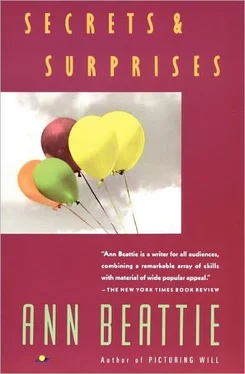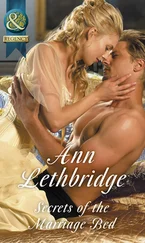“Shut up, you son of a bitch,” she said. “You don’t understand anything, and I’m not going to let you rage against my father the day after he’s been buried.”
He looked at her, shocked that she would call him that, sorry for having said the wrong thing. She had let go of his arm and stood there, her face firm and challenging, and he could see that she did not want to do anything more than kill him. He looked at the sidewalk and muttered an apology, reached again for her arm. She snapped it in to her side and began to walk, and he walked at her side, thinking, for the first time, My God — she’s bigger than I am. He looked up at her, a large girl, even taller than usual in the high-heeled black boots she had worn to the funeral. She would never understand. Horace Cragen had been larger than life, he was right about that, and she was larger than life too, though she would never admit it. Didn’t his own father disparage the constant photo-taking, the constant reporting on, analysis of, his work? Great men didn’t want to think they were great all the time — only when they needed confidence, or when they felt like playing the role. But he squinted hard here: she was not great in that she was accomplished, she was just large and silent — her father and not her father.
He squinted again, this time looking at her: she had admitted that she was shy as a child. He was that way, too, and he understood it: he had quit Harvard because he did not want to let people know he was bright and talented, just another rich man’s son making it big. He would rather be passive, lie low, carry out the pointed-toe shoes to the fan-shaped feet of the women who came into the store. It was no wonder she had admired the statue so — she had envied the young dancer, poised to take her step. Like him, Diana had no clear ambition. He knew more than he ever had before, and he wanted to explain it to her, but there was no way to do it. She was walking ahead of him, still furious. He trailed beside her, but her face was set. If a man walking along had not touched Griffin’s sleeve to ask what time it was, the intensity of his own thoughts might not have been interrupted and he might have continued to walk with her — she clearly did not know where she was going, but was getting breathless going there — across the city for even longer. Griffin looked at his watch and was shocked to see that they had already been walking for almost two hours, that he must get her back to the apartment.
She lived with Griffin in the month following her father’s death, not hating him for his problems or even for what he had said so coldly on the walk in New York to leave him instantly, but unhappy still, in spite of their occasional compatibility and even happiness, now knowing she would have to leave soon. She asked Louise if she would be able to stay with her and her roommate until she could find an apartment to share, and Louise, of course, said yes.
Since coming back, she had had recurring dreams: grotesque in their comicness, dreams clearly planted in her mind by Griffin (the way her mother had planted the word “home” and she had innocently repeated it to him) in which she would approach her father’s tombstone and it would grow higher and higher, blocking everything from her view. She would finally be standing before a wall of total gray, and this is the point in the dream at which she would wake up. Lately the dream had become even more horrible, with a loud noise — a confusion of voices — that augmented as the tombstone rose: the voice of her father reading fragments from his long poem, the voices of a Lion and a Wolf talking with human voices, a shout from Lyca, even the landscape of the cemetery — the softly-out-of-focus bushes but the bright tall sunflowers bordering the path she walked to her father’s headstone — all put in her head by her father.
Her father had told her that she didn’t do well in literature classes because she knew more than the teachers; Griffin told her that because her father was a literary man, naturally she resisted competing with him. Why did Griffin stubbornly insist that her father was such a dominant force in her life? He had been a gentle man, not overbearing at all, the man she skated with in the warm weather, who brushed her hair and told her bedtime stories like any father. But then why — if he had not been that force — why the nightmares? Because anyone would have nightmares when a parent died. Louise had said so.
She told Griffin she was leaving, and he was very unhappy. So unhappy that he rose from the bed before her — she heard the faint music from the other room when she awoke from the nightmare and reached out to touch only tangled blankets. She listened and could pick it up faintly: “Little boy lost, he takes himself so seriously …” And she pursed her lips until she realized that this time she was making too much of it; he would surely not have been able to time the singing of that phrase with her awakening if he had wanted to. So she went out to the living room and put her arms around him.
• • •
She saw him hardly at all after she left, then not at all, and when he called her in late September she was surprised to hear that he was back at Harvard. She knew from Louise that he had called there wanting to find out about her — he had called drunk one night and demanded that Louise tell him if she had another boyfriend.
“I’m sorry,” Diana sighed. “What did you say?”
“I didn’t want to say no, so I hinted that you did.”
“That was silly. You should have just said that I didn’t.”
“You will,” Louise said. “You will.”
“I don’t want a boyfriend,” Diana said. “I just want to be left alone.”
“You’re still upset about your father,” Louise said, laying her hand on Diana’s in sympathy.
And it was only because she knew Louise meant to be kind that she didn’t yank away her hand. How many times would she have to endure hearing how her father’s life and her father’s death had to do with her life?
Not long after hearing from Louise about Griffin’s call, he called her himself. She was going to berate him for drinking and for bothering her friend, but thought better of it. He had said enough to her, and she had said enough to him — she should just let it go.
She was glad that she had not criticized him for anything when he said that he was back in school, with money on loan from his mother. She was glad that he had gone back — she thought that he was wasting his time working, and had told him that all along. She was glad she had not been critical (and would not be critical, as he would have been, about the semantics of taking money from his mother but not from his father) because he sounded happy, and he seemed to know he had made a sensible decision. He had called her for approval, and she gave it to him. He had also called to see if she would have dinner with him, and she said that she would.
“Do you have night classes Monday?” he asked.
“I don’t have any classes. I’m working on Newbury Street from nine to five, and I love it. I go home at night and read a book or go to the movies.”
“You’re kidding,” he said.
“No. I know it’s ironic, your going back to Harvard and my dropping out of school, but you made the right decision, and I did too. I wasn’t getting anything out of it.”
“Christ,” he said. “You didn’t make the right decision.”
She let that go, too. The last thing she wanted was another argument with him.
The dinner was nice: the food was good, he had only one glass of wine, and it made her a little sad that she was no longer with him. She knew that she had done something to him that she had not meant to do — she knew it at the time, when she awoke to hear him listening to sad songs late at night. But it was inadvertent — at least she could say that; he had continued his drinking and badgering her, when he knew she could not stand it, but she had only lingered with him a little time before deciding to go. And now that she was gone, he seemed better. She was so glad that he had gone back to school. They left the restaurant and took a walk before she went back to her apartment and he went back to his when, swinging her hand and speaking very kindly, he said, “I guess Louise told you what I did. My apologies to you for acting so stupid, but no apologies to her — if anything, it put a little excitement in her life.”
Читать дальше












